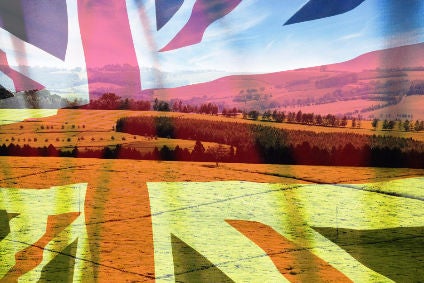
A no-deal Brexit could cost the UK food and drink supply chain GBP9.3bn (US$12.15bn) due to tariffs and other customs expenses, according to a study from banking giant Barclays.
If the UK crashes out the EU next March without a trade deal, the food and drink industry in the country would face an average tariff from the EU of 27%, the report – Scale, Disruption and Brexit – a new dawn for UK food supply chains? – said.

Discover B2B Marketing That Performs
Combine business intelligence and editorial excellence to reach engaged professionals across 36 leading media platforms.
Moreover, a consignment of goods from the EU will require a customs declaration which starts at a minimum of GBP50, according to the report.
Ian Gilmartin, head of retail at Barclays Corporate Banking, said: “The food and drink industry is one of the country’s most important sectors, employing millions of people across the UK. For the good of both UK business and consumers, the potential impact on our producers and grocery retailers should be front and centre of Brexit negotiations.”
There is more than one instance when the UK could leave without a deal. By 29 March 2019, the UK and the EU need to find a deal on issues included in their “withdrawal agreement”, announced in March this year, and which focused on issues such as the Irish border and citizens’ rights.
If that goes smoothly, a transition period kicks in that lasts until December 2020 when the UK is looking to have struck a trade deal with the EU. The first case is seen as the worst kind of no deal, although either way there would be no trade deal.

US Tariffs are shifting - will you react or anticipate?
Don’t let policy changes catch you off guard. Stay proactive with real-time data and expert analysis.
By GlobalDataGilmartin added: “Some products would avoid tariffs, even in a no-deal scenario, but for most goods the effect of an increased tariff burden would be extremely damaging, and cheaper goods would be the hardest hit. Seventy-one per cent of our imported food and drink comes from the EU, and 60% of our exports go to the EU. A positive agreement on trade is essential if we are to protect UK exporters and avoid significant price rises for UK consumers.”
The report gave examples of the different tariffs it saw arising from a no-deal Brexit. It said “fully processed food and drink products” will attract the highest tariff rate of 31%, compared to 29.5% for “semi-processed food and drink” such as white sugar, and 9.7% for primary products and raw materials like bananas.
Some products will also attract tariffs levied on a per unit basis, by weight or volume, the report claimed, including meat, cereal, olive oil, wine and sugar-based foods.
The study said “hardest hit” will be products that attract a category tariff and a specific duty tariff, such as frozen beef with a specific duty of 298%.
Earlier this week, the UK government issued the latest batch of its “technical” or advisory notices in which it is seeking to outline the possible impact of no deal with the EU. This week’s notices including positions on geographical indications, the labelling of food products and animal health certificates.
Yesterday, it emerged the UK government had appointed a minister to oversee the protection of food supplies during the Brexit process. David Rutley, a former executive at PepsiCo and Asda, was appointed as a Parliamentary Under Secretary of State at the Department for the Environment, Food and Rural Affairs earlier this month.
The appointment follows comments this summer from UK Brexit Secretary Dominic Raab that the Government would work with the food sector to ensure the country has an “adequate” supply of food in the event of there being no deal with the EU on Brexit – comments that caused bemusement in sections of the industry.
For just-food’s dedicated Brexit and the food industry coverage, click here





